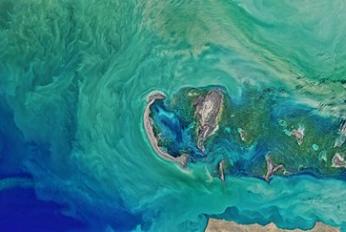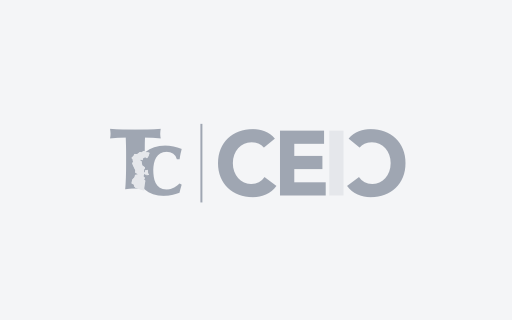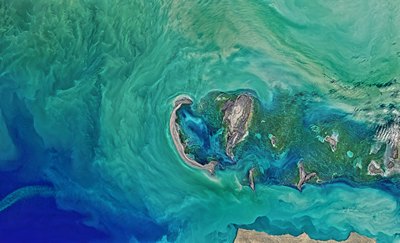Documents
This section features public documents and files uploaded by the stakeholders and custodians of the Caspian Sea environment.
 Article - Review of pollution sources and controls in Caspian Sea regionMon, 23/04/2018 - 18:24Daily extractions of crude oil and gas and transportation of them are the main pollution sources of the Caspian Sea. Many trucks for charring oil from ports along the Caspian Sea are considered as point and nonpoint sources along the seaboard. In addition, many ships, which are navigating in the Sea, are emitting pollution t
Article - Review of pollution sources and controls in Caspian Sea regionMon, 23/04/2018 - 18:24Daily extractions of crude oil and gas and transportation of them are the main pollution sources of the Caspian Sea. Many trucks for charring oil from ports along the Caspian Sea are considered as point and nonpoint sources along the seaboard. In addition, many ships, which are navigating in the Sea, are emitting pollution t
- Description
Daily extractions of crude oil and gas and transportation of them are the main pollution sources of the Caspian Sea. Many trucks for charring oil from ports along the Caspian Sea are considered as point and nonpoint sources along the seaboard. In addition, many ships, which are navigating in the Sea, are emitting pollution to the Sea. Many cities and industries surround the Caspian Sea. Pollution from these cities and industries enter the Caspian Sea either directly or through rivers. The purpose of this paper is to look at the benefits of environmental management strategies in pollution prevention such as waste minimization and clean technologies. This minimizes the environmental problems due to waste generation and eliminates the cost of treatment and disposal of the waste. The benefits of the environmental management program along the Caspian Sea will ensure the clean water and the better environment of the Sea.
- Attached documents
- Metadata
- Year
- 2009
 Final Report: Caspian Sea POPs Workshop (2010)Fri, 20/04/2018 - 15:05The Tauw Consortium (TC) formed by Tauw bv - the Netherlands, Milieukontakt International (MKI) - the Netherlands, International HCH and Pesticides Association (IHPA) - Denmark and COWI A/S - Denmark, was selected by the World Bank in October 2009 to execute a Caspian regional POPs workshop in Azerbaijan. TC forms a strong O
Final Report: Caspian Sea POPs Workshop (2010)Fri, 20/04/2018 - 15:05The Tauw Consortium (TC) formed by Tauw bv - the Netherlands, Milieukontakt International (MKI) - the Netherlands, International HCH and Pesticides Association (IHPA) - Denmark and COWI A/S - Denmark, was selected by the World Bank in October 2009 to execute a Caspian regional POPs workshop in Azerbaijan. TC forms a strong O- Description
The Tauw Consortium (TC) formed by Tauw bv - the Netherlands, Milieukontakt International (MKI) - the Netherlands, International HCH and Pesticides Association (IHPA) - Denmark and COWI A/S - Denmark, was selected by the World Bank in October 2009 to execute a Caspian regional POPs workshop in Azerbaijan. TC forms a strong OP, POP and hazardous chemicals team that has cooperated in different combinations in many projects in Central Asia and the Caucasus. Local partner was Mr. Islam Muslim Mustafayev the director of the Azerbaijan branch of the Caucasus Environmental NGO Network.
The workshop aiming at the improvement of obsolete pesticides management was held at the World Bank Office in Baku, from 7 till 11 December 2009 with participants from the five Caspian littoral states and donor organizations (World Bank, FAO). The workshop comprised sessions on: - An update on implementation of international requirements related to obsolete/ POPs pesticides - Development and strengthening of legal and institutional framework - Public awareness raising - Technical problems and priorities The workshop was held as an interactive workshop in which participants presented the current state of the abovementioned aspects of pesticide management for their country. Difficulties and gaps were discussed and ideas were developed in order to bridge the gaps identified. A legal gap analysis showed that in all countries there are gaps in legislation concerning the pesticides cycle. POPs often are not included and legislation needs to be aligned with international requirements. There is a lack of coordination between institutions and stakeholders in most countries. In many countries environmental and human health problems related to obsolete pesticide stocks are aggravated by a lack of awareness. Russia and Azerbaijan presented their experiences with inventory and technical difficulties. The presentations showed that there are problems with planning and coordination, a lack of environmentally sound storage capacity, a lack of knowledge concerning the scale of the problem (reliable and complete national inventory) and a lack of knowledge concerning handling of liquid pesticides. Action plans were presented, which for some countries like Russia, were plans of different options (signing the convention, detailed inventory, pilot on implementation PSMS). Also for Turkmenistan, ratification of the Stockholm Convention is a big challenge. For other countries like Azerbaijan, there is a follow up project about to start. Therefore the action plan for Azerbaijan comprises a number of defined steps already (capacity building, full national inventory). Iran presented an action plan for repackaging of obsolete pesticides in the Golestan province.
- Attached documents
- Metadata
- Year
- 2010
Document

